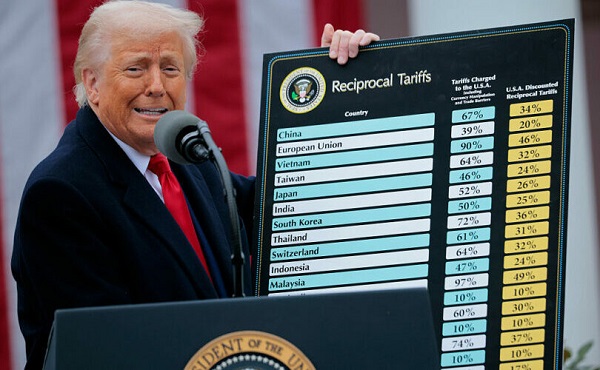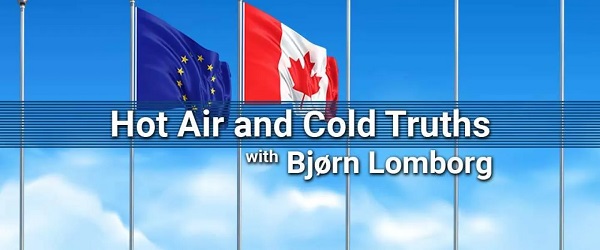From The Center Square
One gets the feeling this isn’t over yet…
President Donald Trump continued ahead Wednesday with his on-again, off-again tariffs, with his latest tariff suspension sending U.S. markets soaring.
Trump announced Wednesday afternoon on his Truth Social app that he would pause the majority of the reciprocal tariffs he announced last week on “Liberation Day,” the April 2 start of the implementation of the tariffs only to reverse course and put everything on pause.
Stocks jumped on the news with the Dow Jones gaining nearly 6% Wednesday after sharp losses during the previous week.
Treasury Secretary Scott Bessent said it was all part of the plan.
“We saw the successful negotiating strategy that President Trump implemented a week ago today. It has brought more than 75 countries forward to negotiate,” Bessent said Wednesday. “It took great courage for him to stay the course until this moment.”
Trump’s pause includes all the tariffs that went into effect at midnight, except the additional levies on China. Trump has targeted the world’s second-largest economy in a tariff war that China has said it will “fight to the end.”
While many other nations called Trump’s trade team seeking deals to avoid reciprocal tariffs, China showed no signs of backing down.
“The U.S. threat to escalate tariffs is doubly erroneous, once again exposing its extortionist nature. China firmly rejects such actions,” China’s commerce ministry said Tuesday. “Should the U.S. persist in this reckless course, China will respond resolutely until the end.”
Trump’s decision to suspend tariffs came after tough questions from Republicans, including U.S. Sen. John Kennedy, R-La.
“I just don’t know what his goal is right now,” Kennedy said earlier in the day after comparing Trump to a dog chasing a car and catching it.
“President Trump has been a Rottweiler here, but now he’s the Rottweiler who has caught the car,” Kennedy said. “That’s the moment we are in now. My question is: What is he going to do with the car?”
Trump has made big, bold promises about his tariffs. He has said tariffs will make the U.S. “rich as hell,” bring back manufacturing jobs lost to lower-wage countries in decades past and shift the tax burden away from U.S. families. He’s also promised to help working Americans with his tariffs.
On Tuesday, Trump wrote “I’m proud to be the President for the workers, not the outsourcers; the President who stands up for Main Street, not Wall Street; who protects the middle class, not the political class; and who defends America, not trade cheaters all over the globe.”
Public Citizen, a progressive consumer rights advocacy group, said Trump’s latest suspension of tariffs showed he doesn’t support the workers who elected him.
“Who’s left out of his megalomaniacal game? The workers he claimed to support,” said Melinda St. Louis, global trade watch director at Public Citizen. “All he has shown is that he’ll cave to Wall Street’s handwringing and prioritize his own power over real people’s plight.”
















